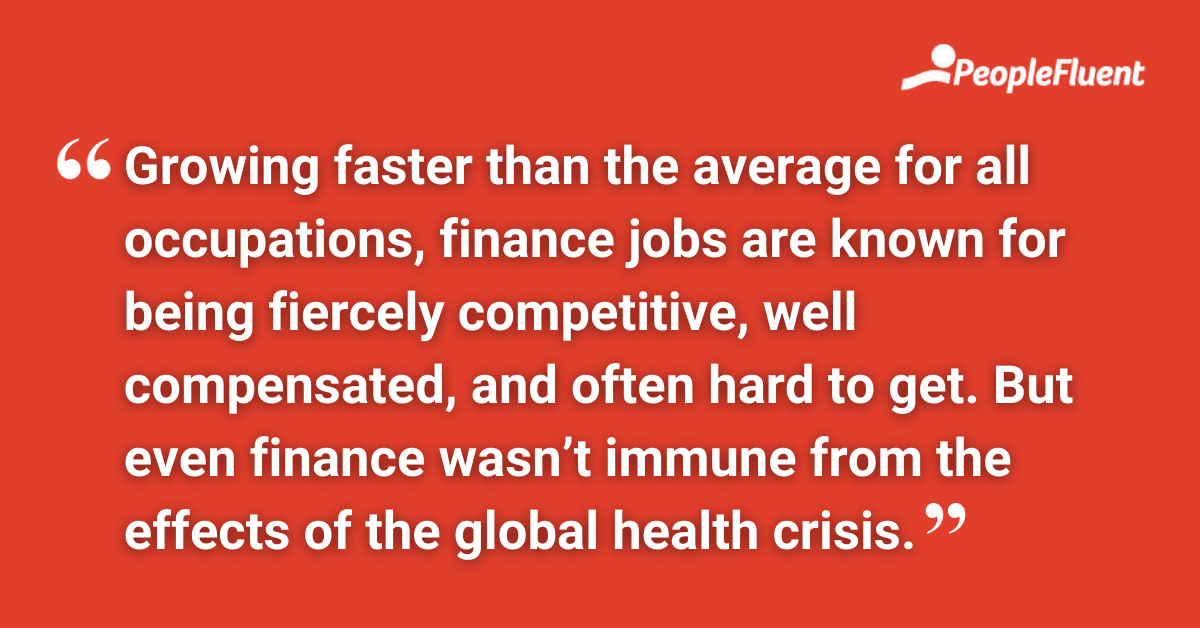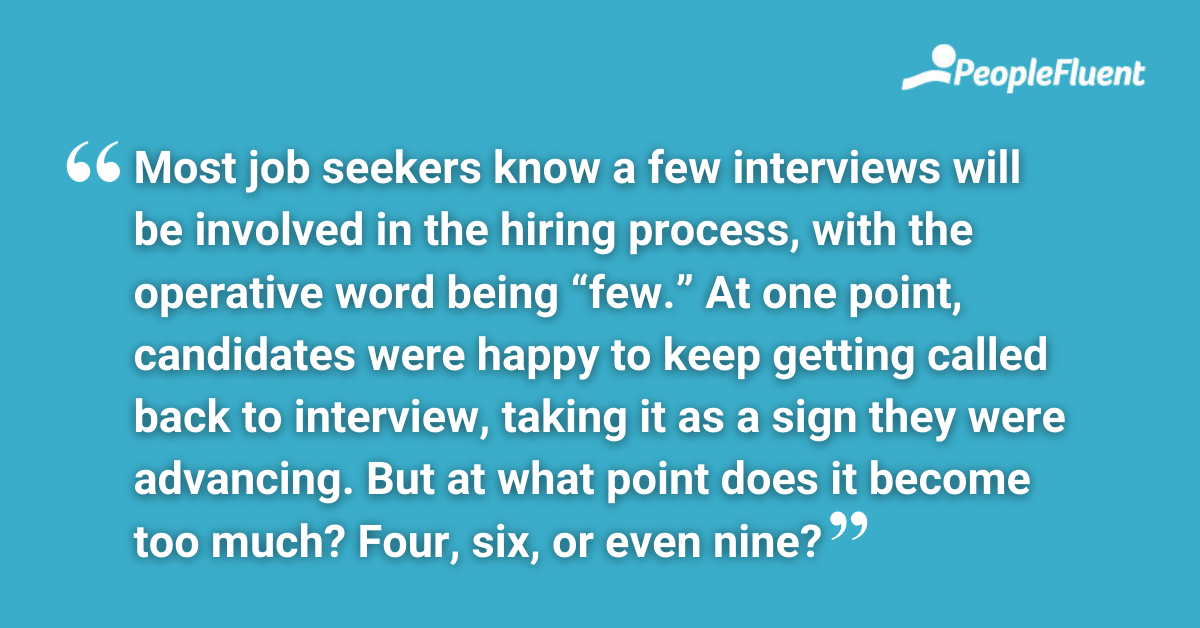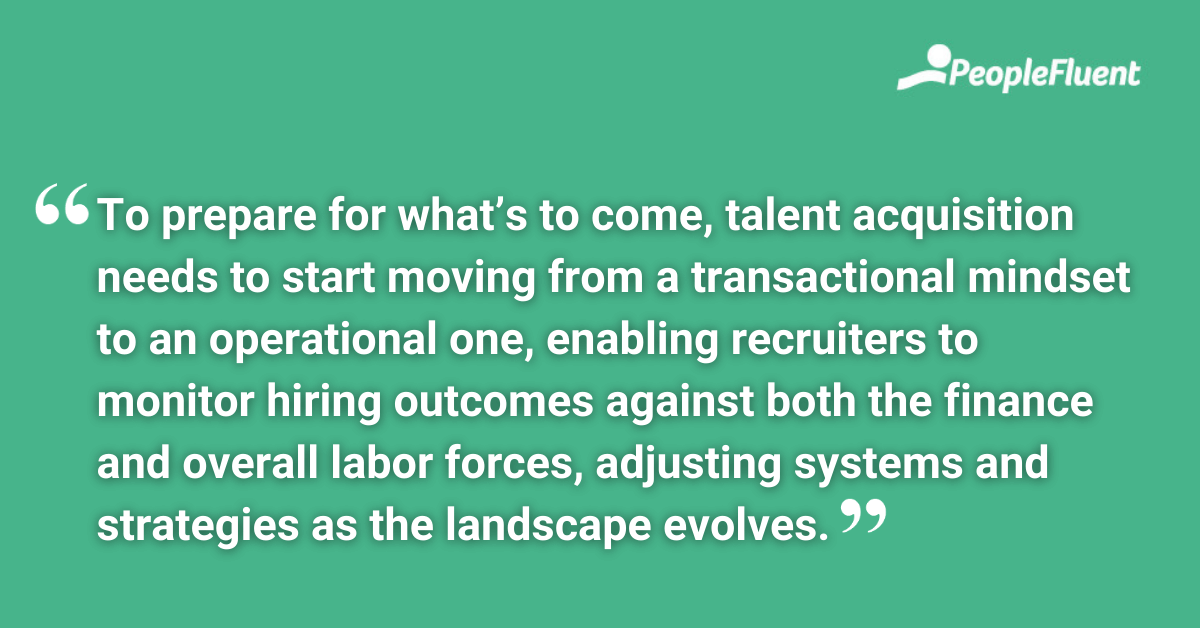Published: Sep 13, 2021Time to read: 5mins Category: Insights
Reopening, Rehiring, Reconsidering: What’s Next for Hiring in Finance?
Does it sometimes feel like the hiring landscape is changing faster than you can say “coronavirus variant”? If so, you’re not alone! To recruit the right talent, you need to stay on top of the latest trends. But let’s be honest—how much time do you really have to keep track of all the changes being thrown your way? So, here’s a (short) article on what’s happening with hiring in the finance sector and where things are going.
The dynamic nature of 2021 is causing friction and frustration for pretty much everyone, and it doesn’t seem to matter where you work; it’s hard to hire these days. There are more open roles than there are candidates, and attitudes around employment are shifting—and quickly. Since the onset of the COVID-19 pandemic early last year, we’ve moved through various phases: unprecedented, resilience, the new normal, and so on.
By now, it’s become clear that what’s happening goes beyond a bunch of buzzwords. There’s a sea change taking place, and the future of hiring is likely to look much different from the past. This will impact some industries more than others—and finance is no exception.
In the “before times,” this sector was expected to add almost half a million new jobs from 2019 to 2029. Growing faster than the average for all occupations, finance jobs are known for being fiercely competitive, well compensated, and often hard to get. But even finance wasn’t immune from the effects of the global health crisis.
As many organizations move to reopen and rehire, here’s a look at what’s changing and what you need to know.
YOU MIGHT ALSO LIKE | ‘The Evolution of Recruiting: From the Digital Revolution to a More Human Approach’

Hiring in the Finance Sector: Now and Then
Finance is a big space, especially if you follow the BLS definition where job titles range from analysts and advisors to fundraisers and meeting planners. Even so, the median annual salary for this category was $72,250 in May 2020, far higher than the median for all occupations ($41,950).
But if you’re following the unfolding narrative of the Great Resignation, you’ve heard that something like 55% of Americans plan to look for new jobs in search of more flexibility and higher pay. And maybe that’s in finance? Well, the financial services sector may have an advantage regarding compensation—it’s often able to outbid qualified candidates, and remains removed from conversations about the minimum wage.
However, it has its challenges too.
First, there’s the matter of remote work, something not many finance organizations offered before 2020. Still, with searches for remote jobs up 460% in the two years between June 2019 and June 2021, these employers will need to decide if remote work is something they can accommodate—and appreciate—going forward.
Recently, Morgan Stanley CEO James Gorman said he believes “we do our work inside Morgan Stanley offices,” especially if employees wanted to get paid “New York rates.” Gorman’s thinking runs counter to a survey of Morgan Stanley interns, who indicated they favor flexible working when they enter the workforce full-time.
Then, there’s what candidates are willing to go through to find a new job. Most job seekers know a few interviews will be involved in the hiring process, with the operative word being “few.” At one point, candidates were happy to keep getting called back to interview, taking it as a sign they were advancing. But at what point does it become too much? Four, six, or even nine? New research from LinkedIn found the median time to hire for finance roles was 46 days, making it one of the longer wait times—and a possible disadvantage in today’s market.
HANDPICKED FOR YOU | ‘5 Steps to Transform Your Talent Pipeline’

The Future of Hiring
In addition to the ongoing pandemic-related uncertainties, we also see finance at an apparent crossroads. And while there’s a growing chasm between employer and employee expectations compounded by a process in need of updating, there are problems that go deeper than the here and now… problems that are both systemic and strategic. Solving the challenge of insufficient in-office resources or having to restart your search as candidates get snatched up by others are temporary fixes.
Jeff Phillips, CEO of Padgett Business Services and co-founder of accounting staffing firm Accountingfly shared, “The skills, characteristics, and work ethic that employers are looking for haven’t changed just because employers are now hiring remotely. Good training, putting in hard work to learn the technical skills, having the highest integrity, and being a great team player are still essential for getting the best roles.”
With so much still unwritten, we need to reconsider what’s important in hiring—and what’s changed. Put into modern recruiting parlance, this means managing for the long term while tackling the immediate.
KEEP READING | ‘How to Implement an ATS: 13 Things to Accelerate ROI’

A Final Word
Clearly defined remote work policies and streamlined interviewing will alleviate some of your current burdens, while adopting solutions that underpin broader talent management initiatives and internal mobility programs will advance recruiting in the months and years ahead.
To prepare for what’s to come, talent acquisition needs to start moving from a transactional mindset to an operational one, enabling recruiters to monitor hiring outcomes against both the finance and overall labor forces, adjusting systems and strategies as the landscape evolves.
Futureproof Your Hiring Process
Need help modernizing your hiring efforts? Attract the right people at the right time with our short guide, ‘6 Strategies for Attracting Top Talent’. Alternatively, reach out—we would love to help!